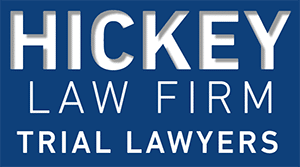Supreme Court of the United States Protects the Rights of Victims of Abuse and Neglect
 Precedent stands, thanks to United States Supreme Court. In a 7-2 decision issued June 8, 2023, the country’s highest court sided with victims of nursing home abuse. This is a momentous win for plaintiffs (people who have been injured or harmed) and for the civil justice system as a whole.
Precedent stands, thanks to United States Supreme Court. In a 7-2 decision issued June 8, 2023, the country’s highest court sided with victims of nursing home abuse. This is a momentous win for plaintiffs (people who have been injured or harmed) and for the civil justice system as a whole.
The case – Health and Hospital Corporation of Marion County, Indiana v. Talevski – centered on whether the family of Gorgi Talevski had the right to sue Health and Hospital Corp. of Marion County under the Federal Nursing Home Reform Act. The Court ruled that they did.
Some background on the case
Gorgi Taleveski had dementia. He lived in a nursing home in Indiana – a nursing home that was owned by Health and Hospital Corp. (“HHC”) of Marion County. HHC is a public health agency.
According to NPR, the family filed a lawsuit against the agency for violating Gorgi’s rights: “In court filings, the Talevski family claims that [Georgi] was overmedicated to keep him asleep, his dementia wasn’t properly managed, and he was involuntarily transferred to different facilities hours away from the family’s home, which accelerated his decline.” (Gorgi Talevski died in October of 2021.)
HHC claimed that Talevski “was violent and sexually aggressive and that affected his care,” and attempted to get the lawsuit dismissed by claiming the family had no right to sue. When the federal court said the suit could proceed, HHC went to the Supreme Court.
Why did HHC believe that the Talevski family had no standing to sue?
This is the “complicated” bit. It has to do with federal laws.
The Nursing Home Reform Act of 1987
The Federal Nursing Home Reform Act of 1987 set certain quality standards for nursing homes and facilities that received Medicare or Medicaid funding. Part of those standards were a “bill of rights” of sorts for residents. They are:
- The right to freedom from abuse, mistreatment, and neglect;
- The right to freedom from physical restraints;
- The right to privacy;
- The right to accommodation of medical, physical, psychological, and social needs;
- The right to participate in resident and family groups;
- The right to be treated with dignity;
- The right to exercise self-determination;
- The right to communicate freely;
- The right to participate in the review of one’s care plan, and to be fully informed in advance about any changes in care, treatment, or change of status in the facility; and
- The right to voice grievances without discrimination or reprisal.
So, the Talevski family argued that HHC violated these rights.
Section 1983
Medicaid is a federal program, and HHC is a state agency that accepts federal money from Medicaid to care for its residents.
So, the Talevski family sued under 42 U.S. Code § 1983 (“Section 1983”), a law which exists to help enforce civil rights at the federal level. This is what the law says:
Every person who, under color of any statute, ordinance, regulation, custom, or usage, of any State or Territory or the District of Columbia, subjects, or causes to be subjected, any citizen of the United States or other person within the jurisdiction thereof to the deprivation of any rights, privileges, or immunities secured by the Constitution and laws, shall be liable to the party injured in an action at law, suit in equity, or other proper proceeding for redress…
In other words, if someone who is a representative of the state violates your rights, you can sue under this federal law. HHC is a state agency, and it takes federal money, so the family filed the lawsuit against HHC under Section 1983.
HHC argued that there was no legal standing to sue. Basically, they said that if your rights are violated, so what? You can’t sue. In fact, they basically said that since people didn’t always have the right to sue the government, that there was no reason folks should be allowed to sue now:
The Court is unpersuaded by HHC’s argument that, because Congress seems to have enacted the FNHRA pursuant to the Spending Clause, Talevski cannot invoke §1983 to vindicate rights recognized by the FNHRA. HHC starts with the Court’s observation that federal legislation premised on the Spending Clause power is “much in the nature of a contract,” Pennhurst State School and Hospital v. Halderman, 451 U.S. 1, 17. From there, HHC argues that Spending Clause statutes may not be enforced via §1983 because contracts were not generally enforceable by third-party beneficiaries at when §1983 was enacted in the 1870s.
What happens now? Did the Talevski family win?
Because of the Supreme Court ruling, the Talevski family gets to continue its lawsuit in the lower federal court. That is what the case was about: whether they had the right to sue. And our highest Court said “Yes, they do have the right to sue.” Whether they win their case or not in that court is a separate issue. We hope they win.
But here’s the important thing for the rest of the country: The right to sue these state-operated facilities under Section 1983 (civil rights violation) is now affirmed. Agencies like HHC cannot stop you from suing under Section 1983. They CAN be held accountable. So while the Talevski case still has to be heard, this decision affects all of us, because it protects our rights.
Hickey Law Firm specializes in “life changing injuries”®. Call us first. Call us now. 800.215.7117.
If your loved one was abused, neglected, or harmed in a nursing home in Florida, Hickey Law Firm can help. We are licensed in state and federal courts, which means that we could represent you in a Section 1983 claim or in a lawsuit against a private nursing home.
Hickey Law Firm handles the most serious injury claims there are. We represent nursing home residents as well as loved ones in cases involving:
- Physical abuse
- Sexual abuse
- Emotional abuse
- Financial abuse
- Neglect
- Willful neglect
When you work with Hickey Law Firm, you work with an experienced team led by an attorney who is Board Certified trial lawyer in Civil Trial Law. John H. (Jack) Hickey spent 17 years working for insurance defense firms before changing sides to work on behalf of injured people. He knows their tricks and can anticipate how they will act from the start. This is to your advantage.
Don’t delay. If your loved one was harmed in a nursing home in Miami or anywhere in Florida, we can help. If you live in Florida and your loved one lives out of state, we can help. Call Hickey Law Firm in Miami or fill out our contact form.
NOBODY FIGHTS HARDER. NOBODY FIGHTS SMARTER. NOBODY. ®
HICKEY LAW FIRM – CALL US TODAY.

Attorney John H. (Jack) Hickey and his team handle a wide range of cases, including but not limited to cruise ship accidents, admiralty and maritime accident cases, medical malpractice, wrongful death, premises liability, railroad accidents and car accidents. We represent victims from all over the nation, the world and the state of Florida.
Read more about how Jack Hickey can help you.

